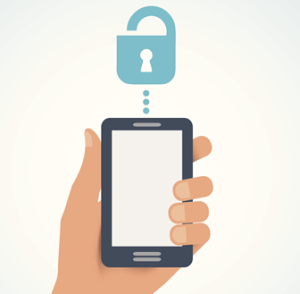To thieves running a muck in the streets, a shiny, $600 iPhone is a pretty enticing item to snatch. So much so that statistics project one in three thefts in the United States involves a smartphone. Stolen mobile devices, on top of monetary loss experienced by the owner, pose major security problems due to how much of our lives lie within our phones. In order to counter the threat of becoming a victim of an “Apple picker” a mobile kill-switch implementation is about to sweep the nation, starting with California. The Golden State will enforce a new law mandating that all smartphones made after July 1, 2015, must include a “kill switch” by default. A kill switch essentially is technology that allows smart device owners to remotely lock their phones and wipe data if needed. This will essentially deter potential robbers from even trying to take a phone in the first place since it would render useless once in unauthorized possession. Thus, security for people as well as business is set to greatly improve.
Identity theft has been increasingly prominent in the pass decade. With more credit card usage, more data sharing, and the digitalization of nearly aspect of daily life, personal information has a higher chance of being exposed and exploited. When a smartphone is stolen, so is the life that is stored within it. This could include access to personal bank accounts, social media profiles, contacts, photos, calendars, and even a record of where a person lives or will be going. Putting a kill switch on the mobile devices acts as a safeguard, mitigating danger that could result from abuse of digitally stored information, and offering physical safety too, should mal-intentioned members of society take advantage of the information acquired via phone.
Aside from personal security a kill switch enables, reassurance for businesses will also be upped. Synced technology is well embraced in the corporate world — meaning data, emails, applications and documents are shared in a cloud and accessible on desktop computers, laptops, tablets and smartphones. Proprietary company intelligence is endangered with exploitation any time employees house and sync data on their mobile devices. Additionally, if a hacker gets a hold of a company phone, there is a possibility he/she could use hacking abilities to ruin an establishment by manipulating apps and accounts a business’ lifeline runs on or even worse, infiltrate a virus into the system that could take down all operations. With a mobile kill switch organizations will gain a greater sense of security.
To meet the regulations of the kill switch, Qualcomm is developing their mobile devices with kill switches integrated into its Snapdragon processor chip. Should a company phone or tablet fall into sticky-fingered hands, a business has the ability to wipe or turn off the mobile device stemming from the hardware. Other mobile device manufacturers, namely Apple, have also already begun installing kill-switch software. The tech innovator’s Activation Lock prevents anyone from reactivating a device without the original possessor’s permission. The initial efforts to add kill switches are proving successful so far. In the 12 months after Apple added a kill switch to its products, the number of stolen iPhones dropped by 40% in San Francisco and 25% in New York.
A safer world for people and for businesses is on the horizon. Not only will a kill switch protect personal information, but private company communications as well. Once the law goes into effect in California, the rest of the nation will likely follow suit therefore allowing a universal kill-switch regulation that will help reach the overall goal of deterring thieves completely.



thanks for the post !